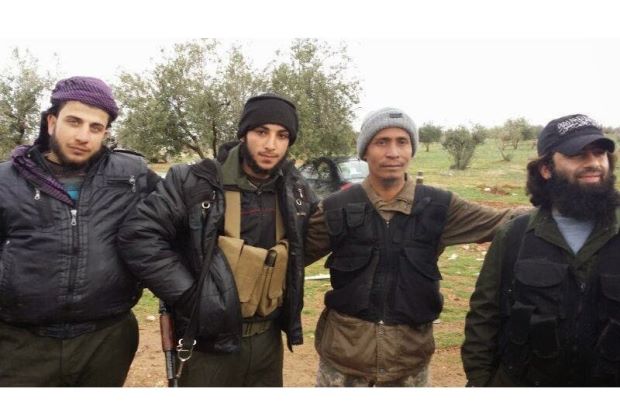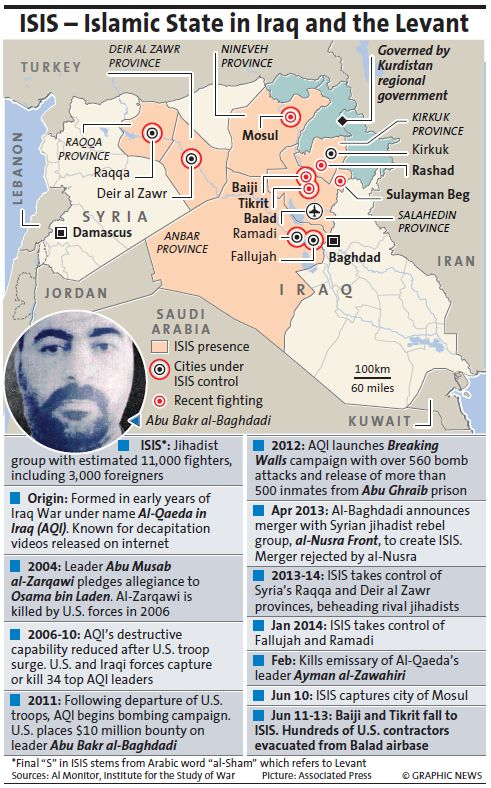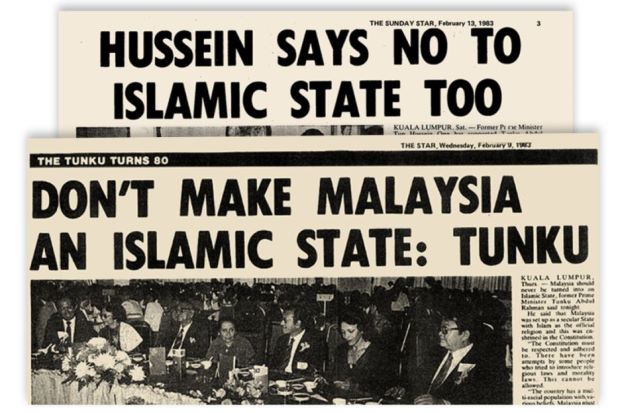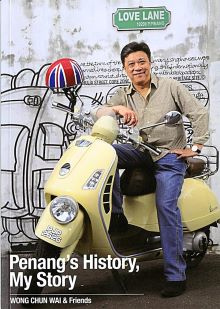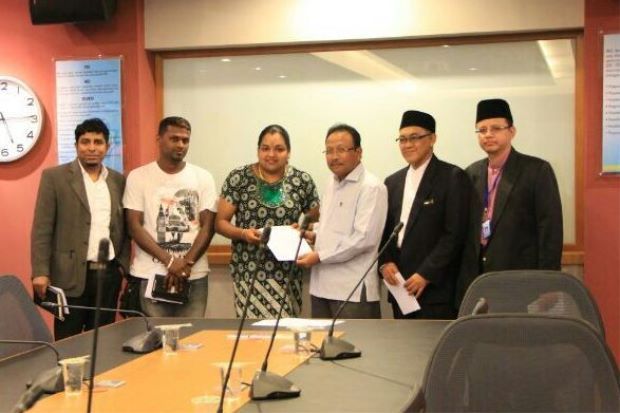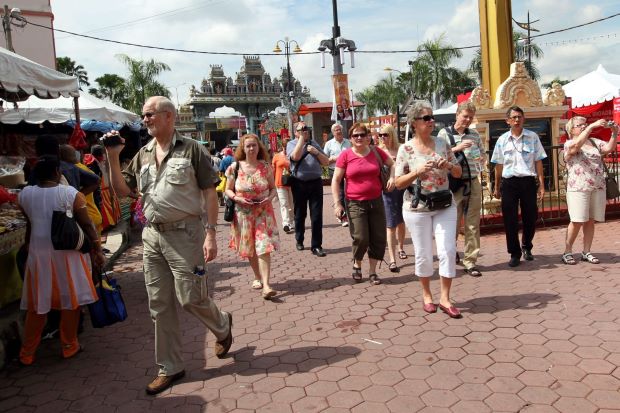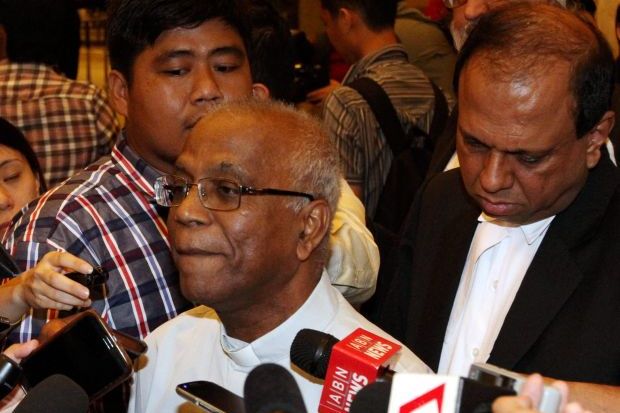
‘The Herald’ editor Rev Lawrence Andrew speaking to the media outside the court in Putrajaya. – filepic
What’s in a name? Well, in Malaysia, it is a big issue and, as events have shown, there are no winners even if the matter has been decided by the apex court.
LET me, right from the beginning, point out that I am a Christian. I am a Protestant, which is different from being a Catholic.
Protestants do not regard the Pope as the leader of the church, unlike the Catholics. The priests and nuns in Catholic churches practise celibacy.
In simple language, they are all unmarried and abstain from sex whereas pastors in Protestant churches can get married and have families.
In Malaysia, both priests and pastors are lumped together and referred to as paderi in Bahasa Malaysia. I do not know why, but that’s how things are.
The fact that there are differences within a faith is not exclusive to Christianity. All the major faiths have different schools of thought.
So when some Muslim groups in the country got angry with the Catholics over the Herald case, it was a Protestant church in Desa Melawati that ended up being hit with Molotov cocktails.
In Malaysia, because of our history, many Catholic churches are easily recognised by their large cathedrals with very distinct architecture.
The mainstream Protestants who came earlier, like the Methodists and the Anglicans, also have distinct churches but the newer Protestant churches tend to be located in shophouses, shopping malls, warehouses and even above coffee shops.
And that’s because the local authorities – the councils – make it difficult for churches to be built.
The conditions forbid the cross from being displayed openly and even putting the word “church” on the signboard is taboo. Many churches simply substitute the word “church” with words like “community centres”.
It is convenient to blame the federal government for everything but much of the authority is vested in state hands.
The church I go to in Petaling Jaya is located in an office block. As far as I am concerned, it is a church to me. To everyone else in the congregation, it is a church.
What is the point I am driving at? Simple. We need some common sense here, which is definitely missing from some of our religious and political elites. There are those who have been speaking a lot of gibberish while some have chosen to remain silent, hoping that the problems will vanish into thin air.
What’s in a name? Well, in Malaysia it is a big issue and, as events have shown, there are no winners even if the matter has been decided by the apex court.
There are only losers. All of us are affected by the negative media attention, especially the bad press overseas. And the sad and painful reality is that so much unnecessary ill will has been generated that threatens to tear at the social fabric that is keeping us together.
Have we managed to resolve anything? No, if you ask me. Many Malaysians remain just as unsatisfied and unsettled, and confused.
The federal government has correctly pointed out that Christians can still use the word “Allah” in churches and that the court ruling is confined only to the Catholic Herald, which had used the word “Allah” in its Bahasa Malaysia edition.
It’s just being practical. Anyone can insist on a blanket ban but how does one enforce such a ruling? By stationing policemen at all churches?
The 10-point agreement, for example, makes it clear that Christians in Sabah and Sarawak can use the Al-kitab and the word “Allah” over there. We can engage in a debate as to what happens when they are in the peninsula, but seriously, how would it be possible to stop them from doing the same here?
There are many Sabahans and Sarawakians in the peninsula who are here to study and to work. It just shows up the ignorance of the peninsular Malaysians when they assume that anyone with a Malay-sounding name and who looks Malay is a Muslim.
The Malays must not forget that the bumiputras comprise many ethnicities who have different faiths as well.
Umno may be strong on its Malay-Muslim agenda but there are actually many Christian bumiputras who are members of the party, something which is lost on some delegates at the annual assembly.
We may see the UiTM, where the recent controversial conference was held, as a fully Malay/Muslim institution but the fact is there are many Christian bumiputra students at the campus, some 3,500 at last count.
In a reply to a parliamentary question, the Education Ministry said the Christology Nusantara conference was an intellectual discourse but one can imagine the dire consequences on any Christian organiser who dares to hold a similar “intellectual” discourse at another public university or college.
What irks many Malaysians is why there seem to be different standards on such matters. Some groups seem to get away with just about anything while action is promptly taken against other groups or individuals.
We should make it clear that anyone who insults another, whether as an individual or as a group, on the basis of race or religion should not be spared.
If the authorities close an eye to these political thugs, it would encourage them to further divide the nation and, worse, send the wrong message that they are endorsed by the authorities.
At the same time, Christians must be honest enough to admit that in most churches, the word “Allah” is hardly used and I doubt the congregation, especially those in English-speaking churches, feel comfortable using the word, instead of “Lord”.
While Christians have fought for the right to use the word, the reality is that it is rarely used – except in services involving Sabahans and Sarawakians. Well, the babas in Malacca would also argue that they, too, refer to God as “Allah”.
One thing is clear. The Al-kitab, mostly printed in Indonesia, will continue to be studied and distributed, like it or not, by Christians who are more comfortable with the Malay language.
After all, our education system has produced a generation of Malaysians, regardless of their ethnicity, who are more at home with Bahasa Malaysia than English.
And let’s also be practical here. This is the generation who can find anything online. You can ban the printed version of the Bible in Bahasa Malaysia but anyone can simply download the entire version online.
The Penang mufti, Dr Wan Salim Wan Mohd Noor, has correctly said that while the word Allah is used by Christians in Arabic countries, there is a need to consider whether it is suitable in our community.
“From what I can see, the majority of Muslims in Malaysia are still unable to accept it. Maybe over time, views can change,” he said.
This is the impression I have received speaking to many of my Muslim friends and colleagues, too.
Of course, they are aware that Allah is commonly used by the Christians in Arabic countries, just as Dr Wan Salim said. But the concern of our Muslim friends goes beyond that – it is that sense of belonging that connects them to Allah that is unique and special.
The reality is there is a fine line between right and wrong in religion, especially if it involves cultural practices.
The churches in Sabah and Sarawak that conduct services in Bahasa Malaysia, read the Al-Kitab in Bahasa Malaysia and refer to Allah, probably also pray quietly in Bahasa Malaysia.
Likewise, I spent a decade in a Catholic school, spent much time in Catholic churches and have many Catholic friends.
Although I am a Protestant, I still pray like how a Catholic would do, in my mind and heart, because of my school legacy.
And it’s between me and God. How I pray and how it is done, or for that matter, how I call God, is my private and personal concern. No one should decide for me nor judge me.
At the end of the day, we should be more fearful of God than men, who are but mere mortals.


